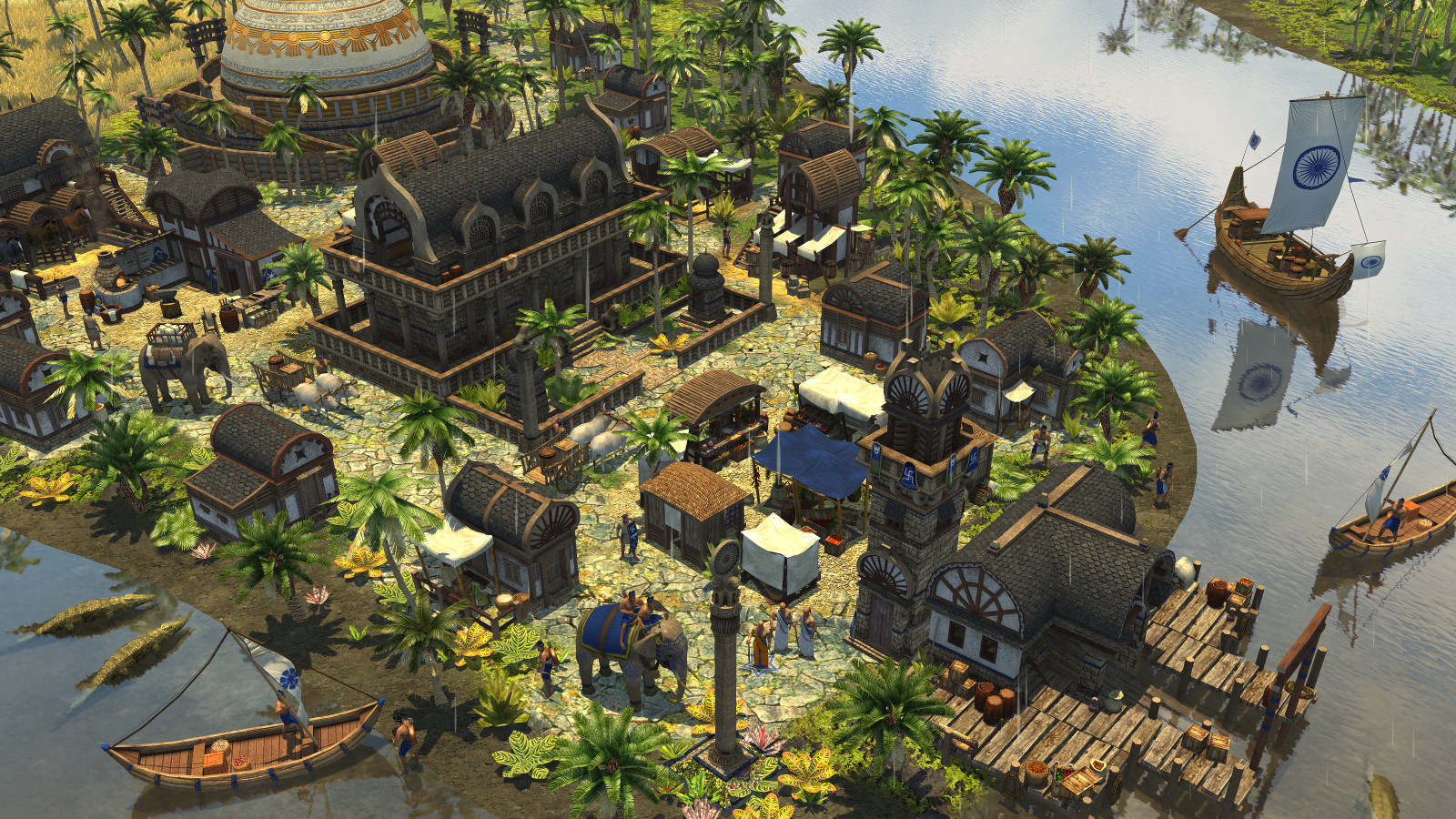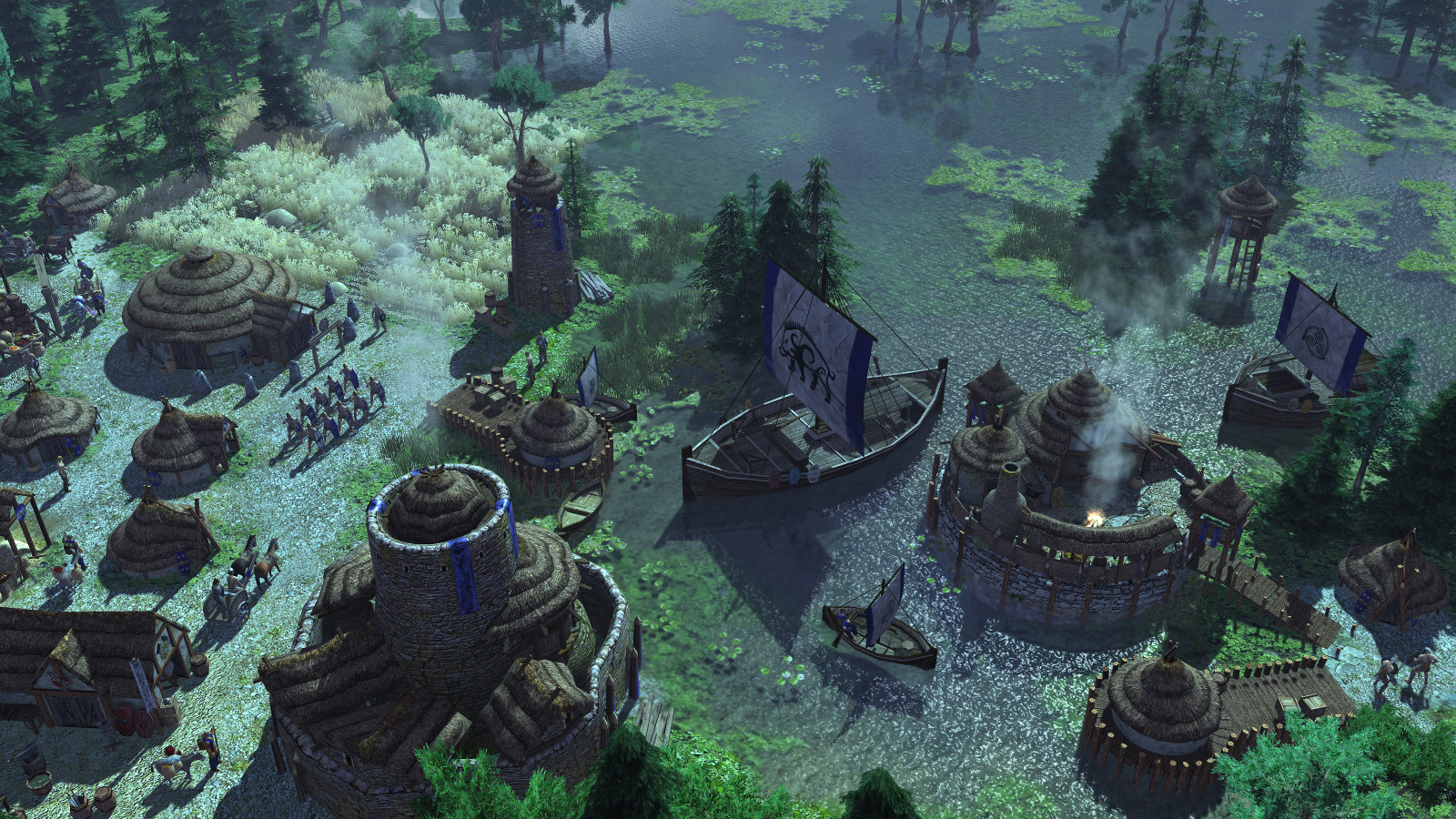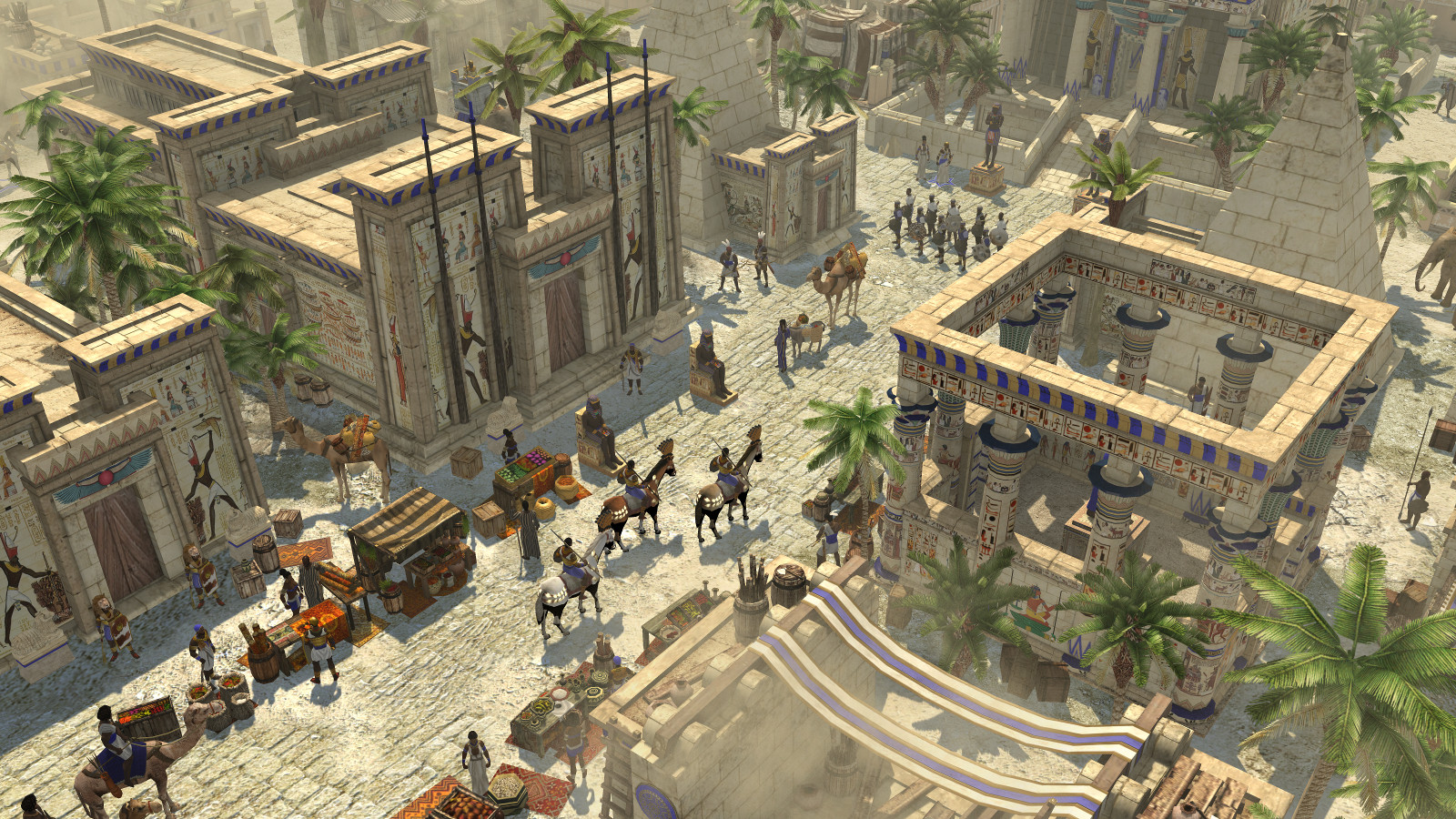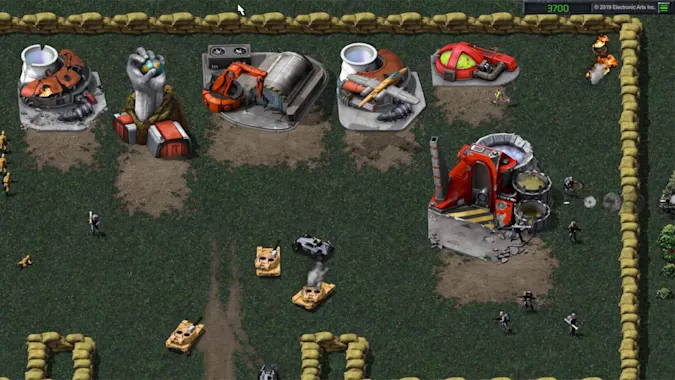Ever wanted to lay your eyes on a game in ‘Alpha Phase’? Ready for an RTS game that has the ambition to change the playing-field of historical games? Want to know what it looks like when Romans get ignored, but the Kush Empire and Mauryan Empire are cherished? In short, would you like to be surprised by a game that has been in development for over a decade? Read our series on this game now! Today: part I.
Finding a gem
I (TimesnewRoman) came across the video game 0 A.D. when I was working on my thesis about ancient history in video games. Being a Roman history nerd, I know a lot of video games with Romans in them, but never came across this one, so it piqued my interest. Soon I realized that this was not just a regular game, but an ambitious multi-decade project. This game stood out to me for multiple reasons and together with Tirreg I will explore the history of and in this game.
This is an epic tale of a game that has been in development for over 20 years now. Epic both in concept, in aims, and in perseverance of the creation of this game, the hopeful prelude of a renaissance of Ancient Video Games. This will be our first of five blog posts about this interesting game. In each of our semi-weekly posts, we will examine another reason why we used the term ‘renaissance’, with each week another theme. First up: what is this game? Why is it different? How is the development different? What are the aims?
Are you ready Commander? History is Yours for the Taking
Around the turn of the millennium, we saw an influx in Real-time strategy (RTS) games, with many video game developers publishing this type of games. The general layout of an RTS game is to construct buildings, gather materials, recruit armies and with tactical maneuvers, the player defeats the other. The other players can be AI’s (computer players) or other human gamers. Real-time Strategy games distinguish themselves from Turn-Based Strategy games. The latter game genre allows players to take turns to take each other out (just like chess, or Sid Meier’s Civilization). The turn-based player may decide when their turn ends. Real-Time Strategy players however play all at the same time and decide their own pace without taking turns.
As a result of the surge in RTS games, efforts were made to create a game that would qualify as ‘unique’ and that would have an edge over their competitors. The Cold War is present in the well-known Command and Conquer series Red Alert, while science-fiction/futurism is present in the Command and Conquer Tiberium series and Starcraft series, published by Blizzard Entertainment. Also, fans of fantasy are served by the Warcraft series and the historical oriented gamers by Age of Empires. Later on, Rise of Nations and Age of Mythology joined the historical group of RTS games. With many developers diving into the market, new and old themes were born, dusted, and revised to distinguish themselves.
There was money to be made in the ‘Gold rush’ of Real-time strategy video gaming. Commercial games are developed to generate revenue and to generate income; its gameplay must be smooth, it has to offer a unique perspective or refreshing gameplay aspects, and when history is used, it should have a layer of ‘accurateness’; a decor of historicity. If multiple aspects are not met, players won’t convincingly enter the game world and may not find the game enjoyable. 0 A.D. saw its first glimpses of light during these dynamic times for RTS games and they also found a way to distinguish themselves.

The Community Creates the Game
0 A.D. decided to steer away from the commercial sphere of games. The game is developed by enthusiastic gamers; not commercially driven to make a profit. One of its main goals is to ‘relive history through historical military campaigns’, and to achieve this the game aims to be historically accurate, instead of providing a layer of accurateness. Units and armor, maps, civilizations, and technologies must be based on the past. All of the elements, which are different for all the chosen cultures in the game, are historically explained by their accompanying texts. It is evident that the availability of historical knowledge for the player is important to the team behind 0 A.D. Their goals then are almost exactly the opposite of the more well-known commercial video games developers. They wish to break a paradigm of ‘re-appropriating’ the past by some commercial video game developers, while simultaneously stating ‘But it’s worth remembering that any game should be fun to play, so, in many cases, we preferred playability over historical accuracy.’
Apart from the goal that sets them apart, there are more elements that set this game apart from other RTS games. For example, they introduce a new type of unit; the hybrid. “Citizen soldiers: Some infantry and cavalry units can not only fight, but also gather resources and construct buildings, making them substantially more versatile than in typical RTS games.” The reason for doing this is historical in nature, ancient soldiers had many more tasks than only fighting. They had to set up their own camps and had to gather their resources. The typical RTS that makes a big distinction between ‘civil’ tasks, letting workers build structures or gather resources, and ‘military’ ones, the fighting bit, is simply too rigid. Later RTS games do use a hybrid form as ‘cititzen soldiers’ but this remains the exception to the rule.
Another example of a new element is their attention to non-Roman and non-Greek cultures in literally every detail. ‘We plan all our units and all our buildings based on reconstructions of how the units and the buildings might have looked like in the ancient world. We even name them in the original languages, such as Greek and Latin.’ This means that the usual emphasis on the Romans and Greek peoples shift to others. While in other games ‘barbaric’ Britains do not receive much attention and certainly not many words in original languages, in this game they went above and beyond to show more of cultures themselves, not just the Roman rendition of some cultures (more about this in one of our next posts). Historical accuracy re-experiences a renaissance.

The ‘Hello world’ of 0 A.D. began in 2001. As mentioned by the developers: “0 A.D. first as a mod concept for Age of Empires II: The Age of Kings, but ‘quickly’ turned into a standalone game.” Twenty years later, they are still developing the game by adding more units, new civilizations, other maps, and a campaign mode. Even as 0 A.D. lacks the financial sources to keep up the pace by commercial companies, it is compensated by passion, energy, and historical accuracy of the player-developers. Moreover, anyone can sign up to help the project reach completion. For example, programmers, historians, sound artists, video editors, even just translators for a wide variety of languages are welcomed to join the project. A glance at the list of contributors really drives home the fact that this project is made by a community for the public to play and experience history for free.
It remains to be seen whether this type of game will ever be able to release. It has been in development for over a decade, and they constantly have to update all parts of the game while being in ‘alpha phase’, so technically not even a ‘béta’. Do not let this fool you, however. This game is perfectly playable and enjoyable! Of course, as players, we would always like to see more and have more possibilities. The makers themselves are also very ambitious in the scope of what they want their game to achieve. I have seen released games that worked half as well as this alpha phase, and all the historical information and details are absolutely worth your time! Download your 0 A.D. here!


Tirreg Verburg has his real Dutch name in the game. He is an independent scholar in the fields of History in- and of video games. With a research master Renaissance Studies gym badge in the pocket, he tries to collect other achievements within the ludic world of game studies and history. Next to being a PC-gamer, he quite frequently returns to the era of the Nintendo GameCube. He also enjoys video game music and has had frequent run-ins with the Oblivion guards.

